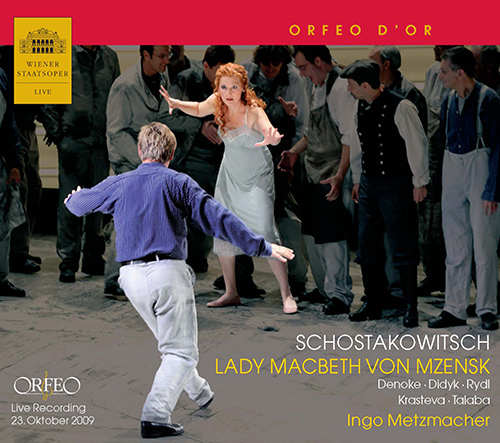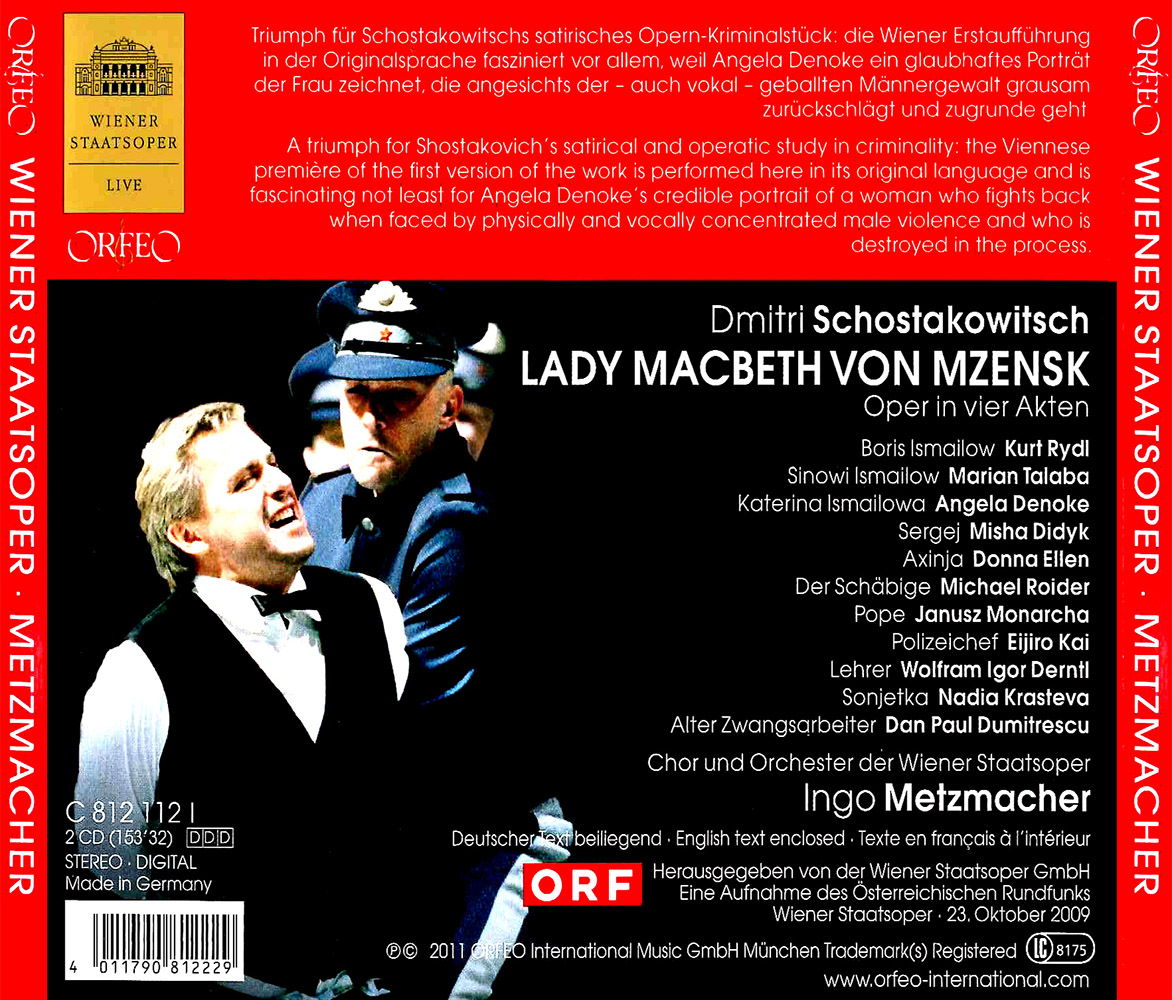Dmitri Schostakowitsch: Lady Macbeth von Mzensk
It took a long time for the Vienna State Opera to get round to mounting a production of the first version of Shostakovich's Lady Macbeth of the Mtsensk District. One of the key works of the 20th century, the opera finally entered the Vienna State Opera repertory in 2009 in its original language and with none of the sanitizing changes that Shostakovich had made to the score in the wake of Stalin's death and of the life-threatening reproaches levelled at the work by the Soviet Communist Party. The plot remains as explosively provocative as ever, with its account of the murderous goings-on of a frustrated merchant's wife in Tsarist Russia and a musical setting that veers virtuosically between biting social satire and sympathy for the protagonist. It was all the more important, then, that the Vienna State Opera was able to enlist the services of an experienced conductor and draw on its own home-grown ensemble led by a singing actress of thrilling intensity: on CD, too, Angela Denoke is fascinating as Katerina Izmaylova, her singing marked by its razor-sharp accuracy and highly individual timbre, her acting making her atrocities at least understandable if not forgivable. In order for the opera to create this impression, it also needs powerful antagonists, which it found in the form of the young heldentenor Marian Talaba as Katerina's duped husband Zinovy and the black bass of Kurt Rydl, who lends a chilling stature to Katerina's violent stepfather Boris. Or take Nadia Krasteva, whose richly coloured mezzo-soprano helps to flesh out the character of Katerina's rival, Sonetka, who appears in the column of convicts in the opera's harrowing final scene. Here Katerina's seducer and lover, Sergey, turns out to be a false friend and, as such, a foil to the protagonist. Making his State Opera début, Misha Didyk used his lyrically and dramatically flexible tenor to create a portrait against which the dark and unfathomable facets of Angela Denoke's portrayal could stand out even more clearly and impressively. The numerous smaller parts, together with the chorus and orchestra of the Vienna State Opera, were inspired by Ingo Metzmacher's conducting to produce an interpretation that explored every aspect of Shostakovich's score, a score teeming with the greatest extremes of tempo, dynamics and rhythm.

















